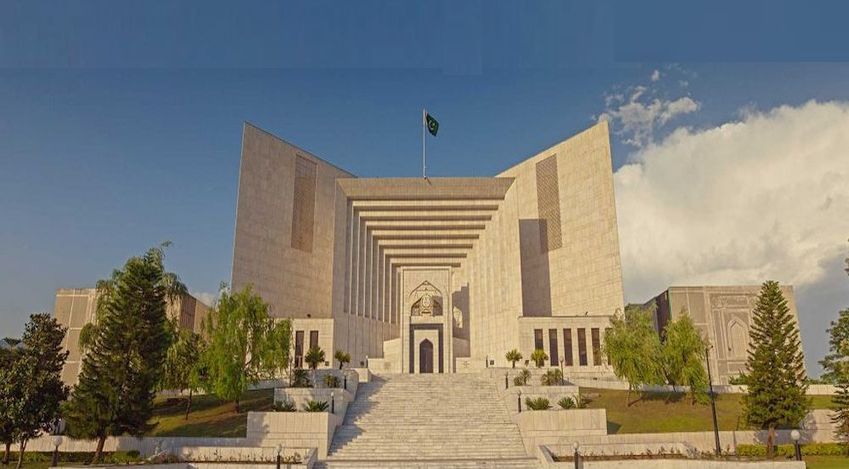Denying the Landlord’s Proprietary Rights does not allow a Tenant to continue Occupying the Property --- Supreme Court of Pakistan
Islamabad 05-10-2024: In a significant ruling, the Supreme Court of Pakistan dismissed a civil petition challenging the eviction of a tenant and reinforced several key legal principles governing landlord-tenant relationships, personal bona fide need, and default in rent payment. The judgment, delivered by Mr. Justice Syed Hasan Azhar Rizvi, upheld the High Court of Sindh’s decision, which favored the respondent landlady, Mst. Verbeena Khan Afroz, against the petitioner, Mst. Mussarrat Shaheen.
The dispute originated from a Rent Case No.01 of 2020 filed by the respondent before the Rent Controller under Section 15 of the Sindh Rented Premises Ordinance, 1979. The respondent sought eviction on grounds of personal bona fide need and default in rent payment. The Rent Controller ruled in her favor, but this decision was later overturned by the District Judge, Malir, Karachi. The respondent subsequently approached the High Court of Sindh, which set aside the appellate Court’s decision, reinstating the eviction order. Aggrieved by the High Court’s ruling, the petitioner filed the present civil petition in the Supreme Court.
The Supreme Court, in its detailed judgment, reaffirmed the following principles:
1. Landlord-Tenant Relationship Must Be Conclusively Established --- The Court noted that the respondent successfully established the existence of a landlord-tenant relationship through two tenancy agreements and title documents. The Rent Controller’s jurisdiction was, therefore, rightly exercised over the matter.
2. Tenant’s Obligations When Disputing Ownership --- The Court emphasized that a tenant cannot retain possession of rented premises merely on the basis of a pending suit for declaration of ownership. The tenant must first vacate the premises, pursue the civil suit, and, if successful, regain possession. Citing the case law Rehmatullah vs. Ali Muhammad and another (1983 SCMR 1064), the Court held that denying the landlord’s proprietary rights does not allow a tenant to continue occupying the property.
3. Personal Bona Fide Need Must Be Established with Credible Evidence --- The Court observed that the respondent’s need for the premises was genuine as she needed to care for her ill husband and two special-needs sons. The burden to prove personal bona fide need was discharged through unchallenged statements and supporting evidence, referencing MST. Toheed Khanum v. Muhammad Shamshad (1980 SCMR 593).
4. Burden of Proof in Rent Payment Defaults --- The judgment highlighted that when a landlord claims default in rent payment, the burden shifts to the tenant to prove otherwise. In this case, the petitioner failed to establish that rent was paid since October 2019, constituting default in payment.
5. Eviction Grounds Not Defeated by Challenging Ownership ---The Court clarified that challenging the ownership of the property cannot serve as a defense against eviction when bona fide need and non-payment of rent have been established.
The Supreme Court found no legal flaw in the High Court’s reasoning and dismissed the petition as meritless, upholding the eviction order. The decision reinforces the established legal principles regarding eviction based on personal bona fide need and rent defaults, setting a precedent for future landlord-tenant disputes.
The petition was dismissed, and leave to appeal was refused, affirming the High Court’s order directing the petitioner to vacate the premises within the stipulated period.
Powered by Froala Editor








